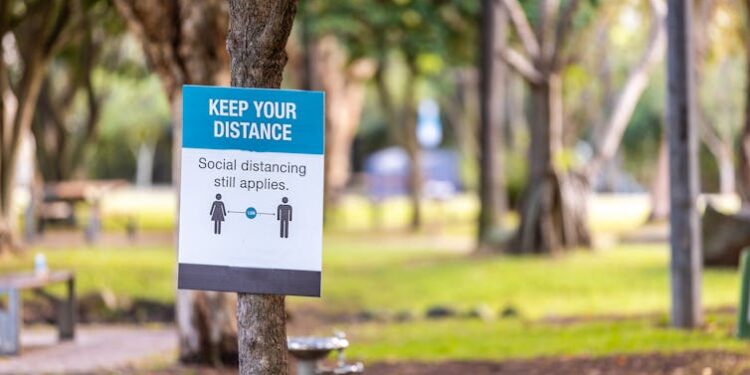A hug from a friend. A squeeze of the hand. A steady arm around your shoulders. Many of us are taught to think of touch as comforting – an instinctive way to offer or receive comfort and express a sense of connection.
But comfort is not always the outcome.
For some, that same gesture can feel intrusive – even jarring. In moments of stress or vulnerability, even a caring touch can miss the mark, leaving someone feeling unseen, misunderstood or more alone than before.
As a social-health psychologist, I study how close relationships shape emotional well-being, especially through the ways people give and receive support. Decades of research in psychology and neuroscience show that touch is more than just a physical act – it’s a form of communication. Whether it lands as comforting or off-putting depends on timing, context and the emotional safety of the underlying relationship.
Table of Contents
When touch lands well
When touch provides comfort, it’s because it communicates safety, understanding and care. It works best when grounded in clarity, respect and emotional timing.
Trust also matters. Comfort comes most naturally when we feel safe – when we know that someone truly sees us and wants to ease our distress. A hug from a friend after you’ve shared bad news feels good not just because of the gesture itself but because of what it says: “I’m here, and you’re not alone.”
Sitting quietly next to a partner or child after they’ve had a hard day at school and offering them a steady hand and gentle presence can do more than any question or explanation. It provides a moment of connection that says: “You’re safe. I’ve got you.”
Over time, attuned touch can do more than provide comfort in the moment – it can strengthen relationships, regulate our stress responses and promote well-being. Recent research highlights how affectionate touch may even support better sleep by reducing stress and increasing feelings of emotional safety. These benefits aren’t limited to romantic or parent-child relationships; many people also find comfort through physical closeness with trusted friends or pets. When it’s offered with care and sensitivity to the moment, touch can build connection, both immediately and over time.
But even in safe relationships, consent and receptivity are essential. Comforting touch should be honest and clear – not ambiguous, not tentative and never assumed. Simple gestures, such as asking “Would a hug help right now?” or offering “It’s OK if you’d rather not” can turn an awkward moment into one that feels safe and seen. And respecting someone’s “no” is just as important as offering touch in the first place. Hearing and honoring that boundary isn’t rejection; it’s attunement.
Ultimately, the most comforting touch communicates care for the person receiving it, not just the intentions of the person offering it. Small shifts in awareness such as paying attention to body language, asking first or simply waiting for the right moment can be the difference between discomfort and feeling understood. When offered with clarity, warmth and respect, physical closeness can do more than just comfort: It can restore.
Why touch sometimes backfires
If touch is a form of communication, it can miscommunicate too. A gesture meant to convey comfort might instead land as pressure, intrusion or something you want to escape.
Sometimes the issue is timing. One person reaches out with genuine care, while the other just needs space. A partner’s hand on your shoulder mid-argument might feel more like control than comfort. A hug meant to soothe can instead feel jarring, coming across as emotionally tone-deaf or misaligned.
Research shows that support is effective only when it’s grounded in mutual understanding and appreciation. If the gesture isn’t wanted or the moment is wrong, even well-intended touch can do more harm than good.
People’s attachment styles also shape how they respond to touch. People with avoidant tendencies often find physical closeness intrusive and may pull away from even small gestures. In contrast, people with more anxious attachment styles may crave the closeness of touch but remain on high alert, wondering whether it’s sincere, if it’s enough or if it will still be there in the future.
In addition, the COVID-19 pandemic led many people to renegotiate their comfort with touch and spatial boundaries. For some of us, keeping our distance became comforting – a new kind of safety that we’re not ready to give up just yet. And a handshake or hug might not feel like a return to normal – it might feel like crossing a boundary you didn’t know you’d built.
Ultimately, what makes touch comforting isn’t just the gesture – it’s emotional attunement: how well it fits the moment, the relationship and the person on the receiving end. When that alignment is off, even the most well-meaning touch can fall flat or make things worse.
Cheryl Bronson/Moment via Getty Images
Want your next touch to land as you intended it?
Like any form of care, how touch is received depends on how, when and why it’s offered. If you want your touch to feel truly supportive, here are a few ways to stay attuned:
-
Who is this for? Ask yourself: Is this really for them or mostly for me? The most comforting touch comes from meeting another person’s need, not your own.
-
Notice what’s unspoken. Physical cues – leaning in, pausing or pulling away – can sometimes tell us more than words. Discomfort doesn’t always need to be spoken to be understood.
-
Offer choice. A simple question like “Would a hug help right now?” is more comforting than reaching out before checking in. And hearing a respectful no doesn’t disrupt connection – it builds trust.
We don’t have to give up on hugs, hand squeezes or reassuring pats. But comfort doesn’t automatically follow from physical closeness – it comes from the understanding and care behind it.

























